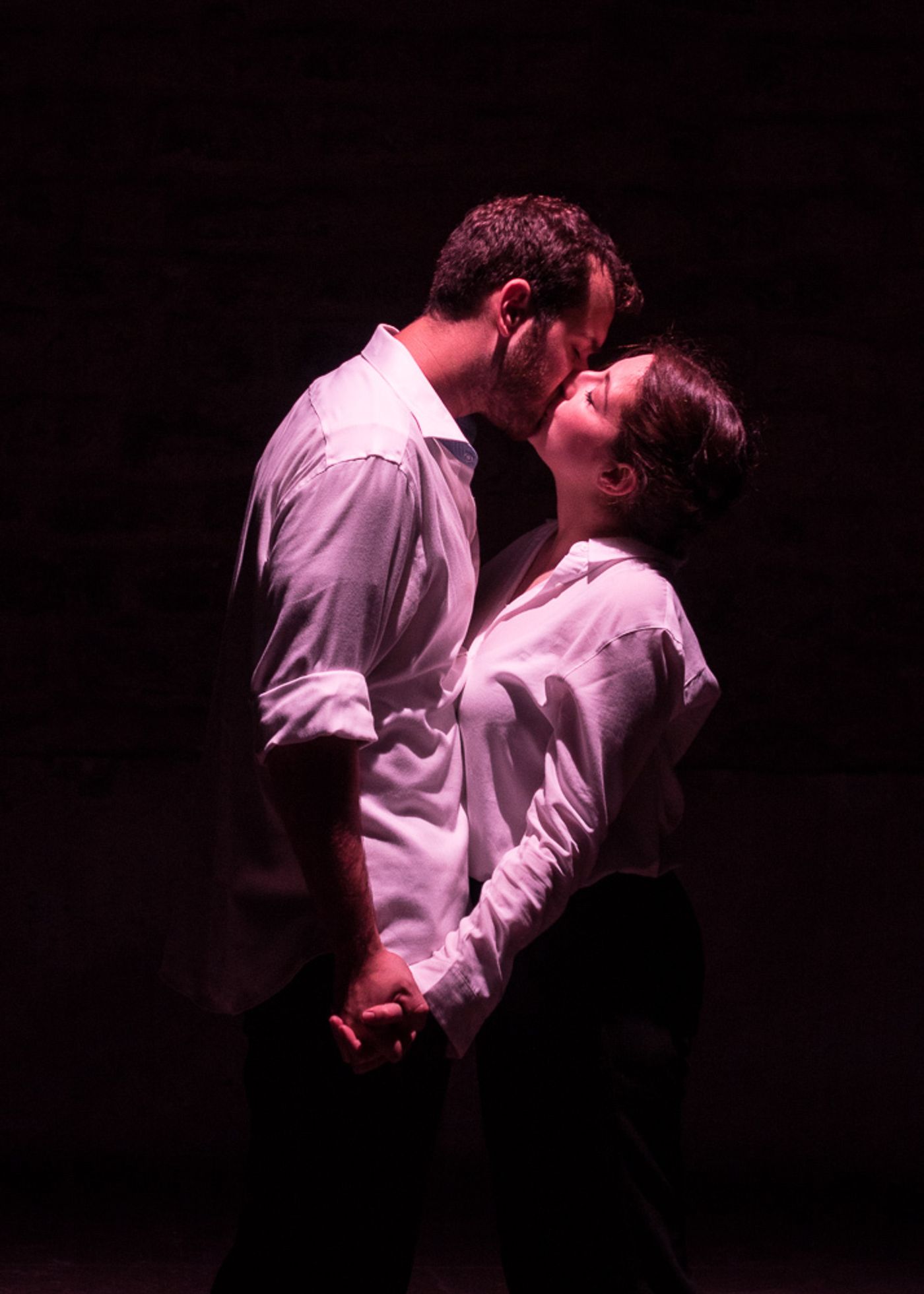Review: BLACK GARDEN at Théâtre De L'Opprimé

The Theatre of the Oppressed (Théâtre de l'Opprimé) has an interesting and deeply political vibe. As with most Parisian spaces, there are some funky things to it, but it feels very welcoming. I say funky because we had to go outside to get to the theatre from the lobby. Not your standard set up.
It was also funky because I was in a funk- sick and exhausted after a day of work. The funkiness only increased when someone else had apparently taken my ticket, and the theatre had already run out of the printed programs. Overall, I wasn't put in a mood to see a show.
Once we had entered the theatre, I found myself a comfortable corner and settled in for the performance. With almost no transition, the show began. The impact of the opening would have been much stronger if the performer entering had not come in just behind an audience member who snuck in where she shouldn't have been, and if they hadn't happened to be wearing almost the exact same thing. I thought the audience member was in the show!
Black Garden is a politically charged two hander about the conflict between Armenia and Azerbaijan. The play was originally written by playwright Gordon Penn for a cast of six, but has been adapted by the company to be handled solely by performers Tamara Sevunts and Alex Marz.
Sevunts and Marz work well together and are both deft at character switching- which they do regularly throughout the show in full view of the audience most of the time. They were great at filling the space, Sevunts slightly more so, and carried their energy excellently over the course of the hour. They both shone a bit brighter playing more naturalistic characters- the caricature political leaders were unlike any other characters and yet weren't stylized enough. They could have been much bolder with those characters to really demonstrate the difference between the politicians and The Civilians or soldiers involved in and affected by the conflict. The interrogation scenes were also compelling. The stakes were palpable, and the simulated water boarding evoked a great response in the room.
Without the benefit of the program telling me, I had no idea the play was centered around a specific location that was key in the Azeri-Armenian conflict, where around 30,000 soldiers died over the course of eight years. This information likely would have helped me to understand what I was seeing and give me a clearer lens through which to filter the information I was getting. Even upon reflection now, there are a lot of elements that I felt didn't give me enough information to invest in the characters, particularly those who recurred multiple times. I found most interesting the spaces between the scenes- I appreciate the work of choreographer Kristen Brooks Sandler and director Arthur Makaryan a lot for not making me sit through any blackout scene transitions, and for giving me something interesting to watch as the actors changed costumes.
I got the impression that there was not much time to do tech in this space, particularly as the surtitles were often completely lost in the stage lights. Speaking of surtitles, I think any company coming to France should be aware that Quebec French is often surtitled, just as English is, because it is so inaccessible to the Parisian ear. Though Sevunt's Montreal accent made infrequent appearances, I think it would have added to the piece to have surtitles when she did use it. However, the music cues were sharp and clear, making the transitions feel like we were really going somewhere.
The last thing that stood out to me was the scale in the middle of downstage centre. I get the metaphor- we are in a conflict and sometimes the scales are tipped one way or the other- but I saw no winners or losers in any of the vignettes I was shown. The way the actors put weights on the scale to tip it in a new direction didn't seem to have grounding in what I had just seen. This bit of scenery felt inaccessible to me, and I felt like I was supposed to have understood something that I simply didn't.
Ultimately, I would hope that this piece gets another round of work. A little more refinement, a few minor re-writes, and I believe this show can be a powerful vehicle to remind audiences what this conflict was and how it affects our modern society. Black Garden kept me in the dark in a lot of ways, but it also brought to light an issue that I never really knew about.
Reader Reviews

Videos


